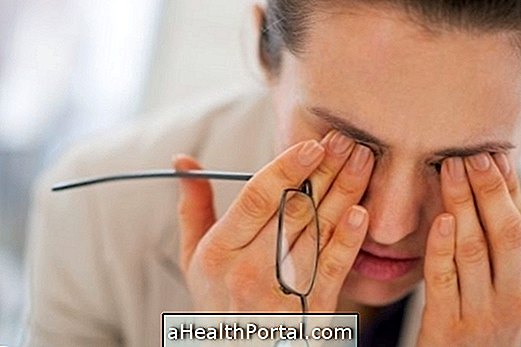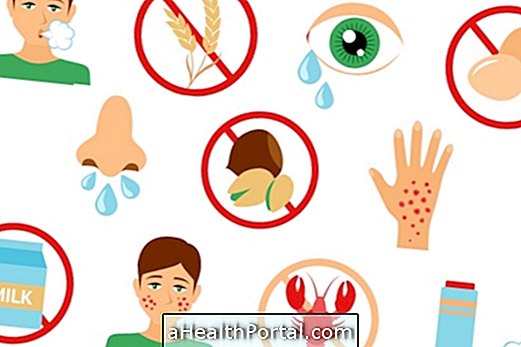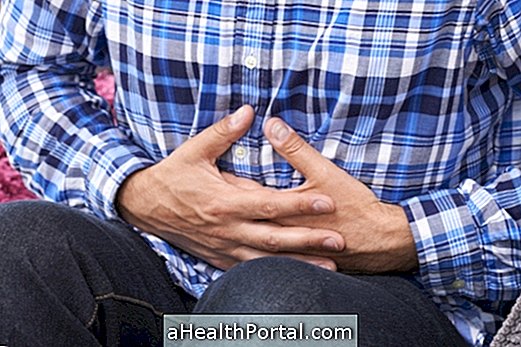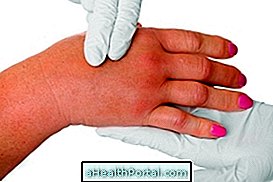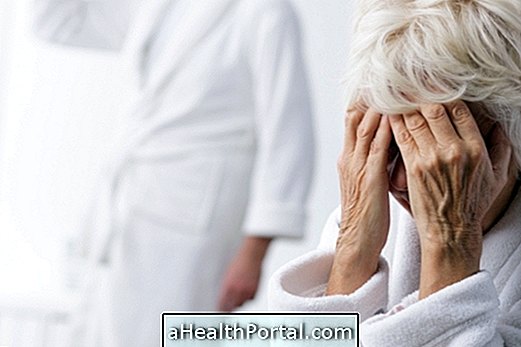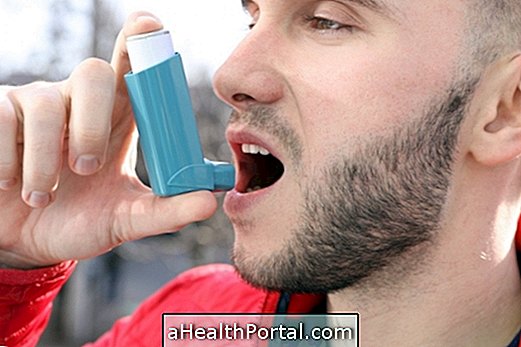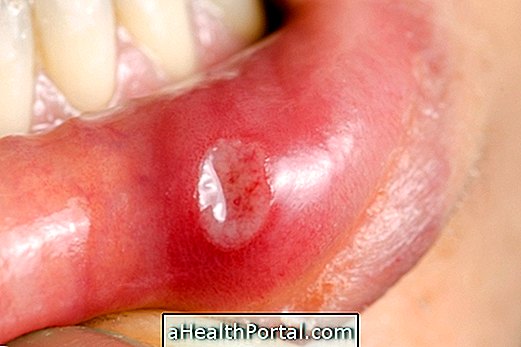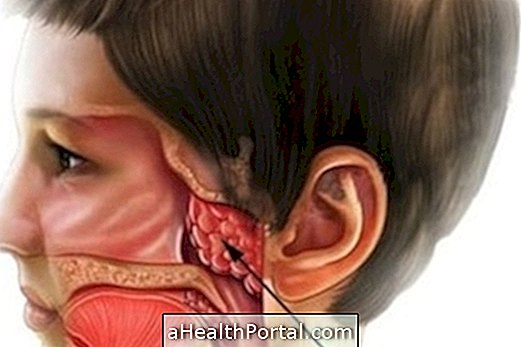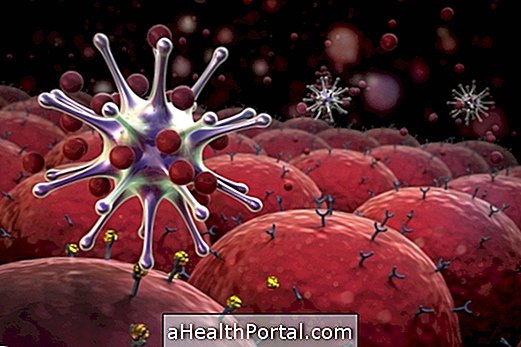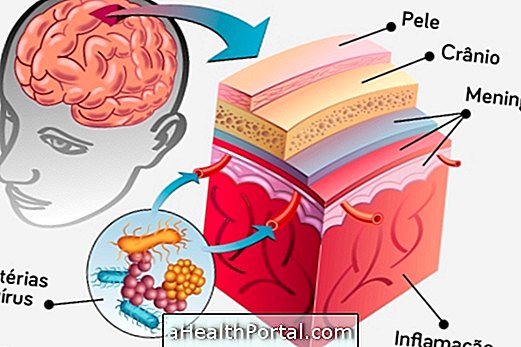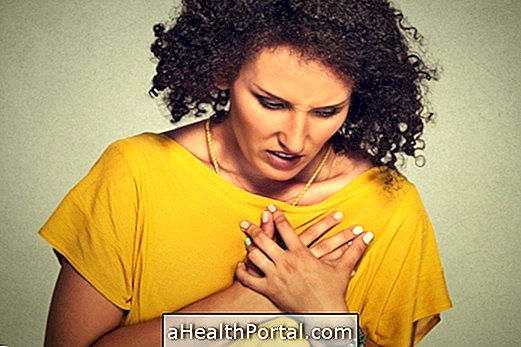Tummy pain is a very common problem that can be caused by simple situations such as poor digestion or constipation, for example, and therefore can disappear without needing treatment, and it is only advisable to rest, avoid eating fatty or rich foods sugar and drink plenty of water.
However when the pain in the belly is very intense or if it is kept for more than 2 days it is recommended to seek a gastroenterologist to identify the cause and start the appropriate treatment.
1. Excess gases
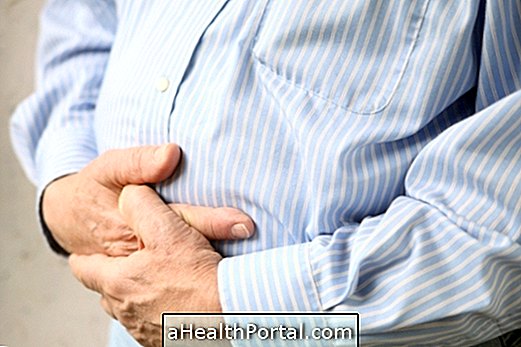
Excess intestinal gas is the main cause of discomfort in the belly, especially in people who suffer from recurrent constipation. But, intestinal gas can also arise when you have a bowel problem, such as irritable bowel, or lactose intolerance, as well as when you eat a lot of foods such as eggs, beans, milk or soft drinks.
What it feels like: In addition to a pinched pain in the belly, too much gas can also cause swollen belly, heartburn, or frequent burping.
What to do: a great tip is to take a lemon balm tea with fennel once a day or take a remedy for gases, such as Luftal. Also, see how to do a massage to help flush out the gas faster.
2. Poor digestion

Like excess gas, poor digestion is also a very common problem, occurring when you mix food wrongly or when you eat foods high in protein or sugar in excess.
What you feel: It is common to experience other symptoms such as heartburn, frequent belching, a full stomach feeling and excessive tiredness.
What to do: One should choose to take digestive teas like boldo or fennel tea, but some pharmacy remedies such as Gaviscon, Stomazil or Eno fruit salt can also be used. See also other options to end bad digestion.
3. Excessive stress

Psychological problems caused by too much stress, such as depression or exhaustion, can alter the functioning of the gastrointestinal system, causing abdominal discomfort that can be confused with problems in the stomach or intestine.
What you feel: Other signs such as diarrhea, constipation, nausea, decreased appetite, trouble sleeping, or muscle aches may occur.
What to do: The ideal is to try to relax to assess if the pain subsides, doing light exercise, doing a massage or resting in a quiet room, for example. However, if symptoms continue, consult a physician to see if there is any other cause. Here are some natural ways to relieve excess stress.
4. Gastric gastritis or ulcer

Inflammation of the lining of the stomach, known as gastritis, or the presence of an ulcer can cause severe pain in the belly, especially after eating or when eating very spicy or fatty foods.
What it feels: In addition to severe pain over the stomach area, it is common to have frequent nausea, loss of appetite, vomiting and a feeling of a bloated stomach.
What to do: When the pain is very intense you should consult a gastroenterologist to do more specific exams like endoscopy to evaluate the existence of an ulcer, for example. However, until the consultation you should make a proper diet that helps relieve the symptoms. See how the diet for gastritis and ulcer should be.
5. Gastroesophageal reflux

Reflux occurs when the acidic contents of the stomach can reach the esophagus, causing irritation and inflammation of the lining of that organ. This problem is more common in people with hiatal hernia, overweight, diabetic or smokers, but it can happen in any person or age due to other problems such as gastric emptying or gastric emptying, for example.
What it feels like: The pain usually arises in the pit of the stomach and is accompanied by a burning sensation in the throat, frequent burping, indigestion, bad breath or a throat sensation. These symptoms may worsen when you bend your body down or when you lie down right after eating.
What to do: Avoid lying down right after eating, sleeping with the head of the bed slightly elevated, making dietary changes, and in some cases taking medications recommended by the gastroenterologist. See how the treatment is done.
6. Intolerance to lactose or gluten

Food intolerances, such as lactose or gluten, occur when the body can not digest these substances, causing inflammation of the entire gastrointestinal system, leading to generalized pain and discomfort after meals, especially when food, such as bread, pasta, cheese, or milk.
What you feel: The pain is usually widespread and accompanied by other signs such as swollen belly, diarrhea, excess gas, irritability or vomiting. In addition, over time, it can happen slimming and loss of muscle mass.
What to do: In case of suspected intolerance consult the gastroenterologist to confirm the diagnosis and start the appropriate treatment. In these cases, one should avoid all foods with the substance to which one has intolerance. See a list of foods with lactose or gluten, which should be avoided.
Irritable bowel

Irritable bowel syndrome is a problem that causes inflammation of the lining of the intestine, and may not have a specific cause or be caused by too much stress or sensitivity to some food, for example.
What it feels like: It is common to feel abdominal pain with severe cramps, excessive gas periods of diarrhea interspersed with constipation.
What to do: You should consult a gastroenterologist to confirm the diagnosis and start the appropriate treatment. In cases where it is possible to identify what is causing the symptoms, one should avoid this food or situation. Understand how you can tell if it is irritable bowel.
8. Problems in the uterus or ovaries

The emergence of problems in the uterus, such as inflammation or endometriosis, as well as changes in the ovaries, such as cysts, for example, are one of the leading causes of belly foot pain in women. Check out 7 other signs of problems in the uterus.
What it feels: Usually, this type of pain is constant and not strong, but it can cause bleeding outside the menstrual period or irregular menstruation, for example.
What to do: If there is pain in the back of the belly that lasts more than 1 week and may be related to the uterus or ovaries, it is important to go to the gynecologist for tests such as pap smears or ultrasonography to identify if there is a problem and start treatment.
9. Problems in the gallbladder or pancreas

More serious problems that arise in the gallbladder and pancreas, such as stone or inflammation, can cause severe pain in the upper belly that worsens over time or becomes more intense after meals.
What it feels: Apart from the strong pain, other symptoms such as fever, belly bloating, nausea, vomiting, diarrhea or yellowish stools may appear.
What to do: These problems should be treated promptly, so if there are suspected changes in the gallbladder or pancreas you should go to the hospital to identify the problem and start the appropriate treatment. See how the treatment is done in case of gallstone or acute or chronic pancreatitis.
10. Intestinal worms

Although intestinal worms are very frequent, especially in those who prefer poorly cooked foods, pain is usually a rarer symptom, arising when the worms are already developing for some time.
What it feels like: The most common symptoms of intestinal worms are weight loss, itchy anus, diarrhea, changes in appetite, tiredness for no apparent reason and swollen belly.
What to do: You should consult a gastroenterologist to take a medicine for worms like Albendazole or Mebendazole, for example. Know what other care you must have to eliminate the worms.
11. Cancer in the intestine or stomach

Pain in the belly is rarely a sign of cancer, however, more advanced stages of cancer in the gut or stomach can cause a constant and difficult pain to describe.
What it feels like: In cancer cases the pain is almost always accompanied by other symptoms such as blood in the stool or vomiting, very dark stools, constant feeling of heaviness in the stomach or anal region, frequent tiredness or weight loss with no apparent cause. See other signs that may alert you to stomach or bowel cancer.
What to do: When there is a suspicion of cancer, especially in the case of a family history of cancer, it is advisable to consult a gastroenterologist. In addition, people over the age of 50 should have frequent endoscopy and colonoscopy because they are at increased risk of developing cancer.
When to go to the doctor
In situations of pain in the belly it is recommended to go to the doctor when:
- The pain is very strong and impedes the daily tasks;
- There is no improvement in symptoms after 2 days;
- Symptoms such as fever or persistent vomiting develop.
In these cases, it is necessary to make medication prescribed by the doctor to maintain the good functioning of the organism, avoiding the dehydration.
